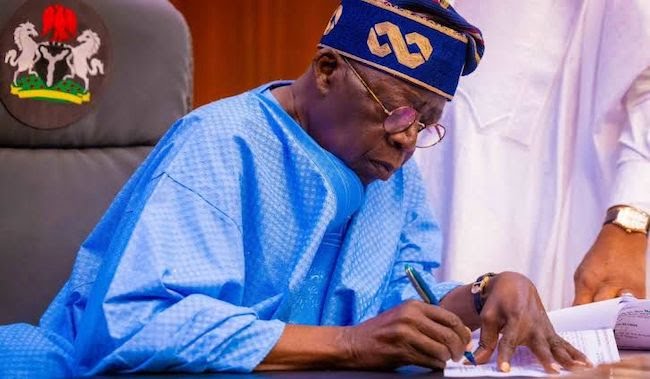In the world of government finance, borrowing money is a common, yet complex strategy that many countries use to fund their projects and cover budget deficit.
Nigeria is one of such countries that has fully embraced this way of raising funds for capital projects.

But when a nation’s deficit reaches a staggering figure like $9.179 trillion, the decision to borrow becomes even more critical.
It’s not just about securing the funds but doing so in a way that ensures financial stability. Also, it should promote long-term economic growth.
For President Bola Tinubu of Nigeria, this is exactly the situation he faces in 2024.
To manage this, President Tinubu has proposed a solution that involves borrowing $2.209 billion from external sources.
This move is part of a broader effort to finance the budget deficit. Also, it will set the stage for future economic planning.
But it’s not as simple as just asking for the money.
The proposal must go through the legislative process. The National Assembly needs to approve it before the funds could be secured.
This is where the president’s request, along with several other key documents, comes into play.
In his letter to the House of Representatives, President Tinubu formally requested approval to raise the $2.209 billion in external borrowing for the 2024 Appropriation Act.
He explained that the funds would help to cover part of the budget deficit of $9.179 trillion.
The Speaker of the House, Tajudeen Abbas, read the president’s request during a plenary session on Tuesday.
Alongside this request, the president also submitted the “2025-2027 Medium-Term Expenditure Framework and Fiscal Strategy Paper” and the National Social Investment Program Agency Establishment Amendment Bill 2024 for consideration.
Tinubu Letter To NASS For Loan Approval
The president’s letter made clear that the borrowing aligns with the provisions of the Debt Management Office (DMO) Establishment Act 2023 and had already received approval from the Federal Executive Council.
“I write to request a resolution of the National Assembly to raise the sum of ₦1,767,610,321,779, equivalent to $2.209 billion, at the budget exchange rate of $1 to 800 Naira, as new external borrowing in the 2024 Appropriation Act to part-finance the budget deficit of $9.179 trillion in the 2024 budget,” the president’s letter read.
People Also Read: Obasanjo Vs Tinubu: Nigerians Choose Their Best President
Also, President Tinubu urged the National Assembly to act swiftly on the 2025-2027 Medium-Term Expenditure Framework and Fiscal Strategy Paper.
He says it will be the basis for the 2025 federal budget.
Furthermore, he emphasised that timely approval of this framework would ensure the proper planning of future government spending.
In addition, President Tinubu called on lawmakers to pass the National Social Investment Program Agency Establishment Amendment Bill 2024.
This bill aims to make the National Social Register the main tool for targeting beneficiaries of government social investment programmes.
Furthermore, President Tinubu explained that the bill would ensure the programmes were more data-driven, transparent, and effective in reaching vulnerable Nigerians.
FEC Approval
In related news, Nairametrics reported that the Federal Executive Council (FEC) recently approved a $2.2 billion financing programme to support the government’s external borrowing plan.
The Minister of Finance and Coordinating Minister of the Economy, Mr. Wale Edun, made this known after the FEC meeting in Abuja.
Edun stressed that this approval was crucial for the government’s borrowing strategy.
According to him, it aims to meet the country’s financial needs and support its economic recovery.
“We just had the Federal Executive Council meeting, and I am privileged to present two memoranda to the Federal Executive Council.
“The first one was to complete the borrowing programme of the Federal Government in terms of external borrowing with the approval of a $2.2 billion financing programme,” he said.
The proposed financing package will grant the government access to the international capital market.
Also, the government has a plan to issue Eurobonds and Sukuk bonds to raise the necessary funds.

